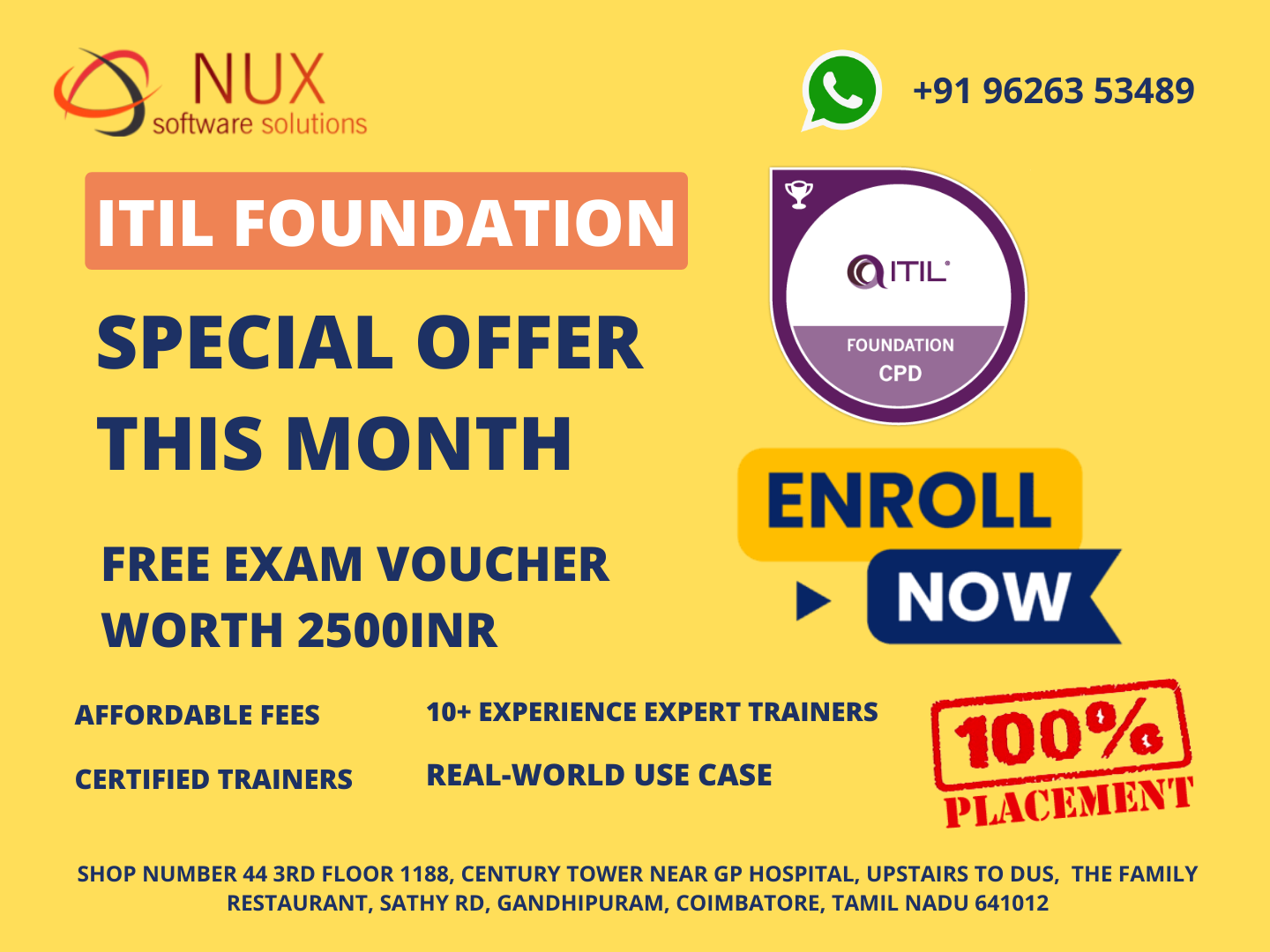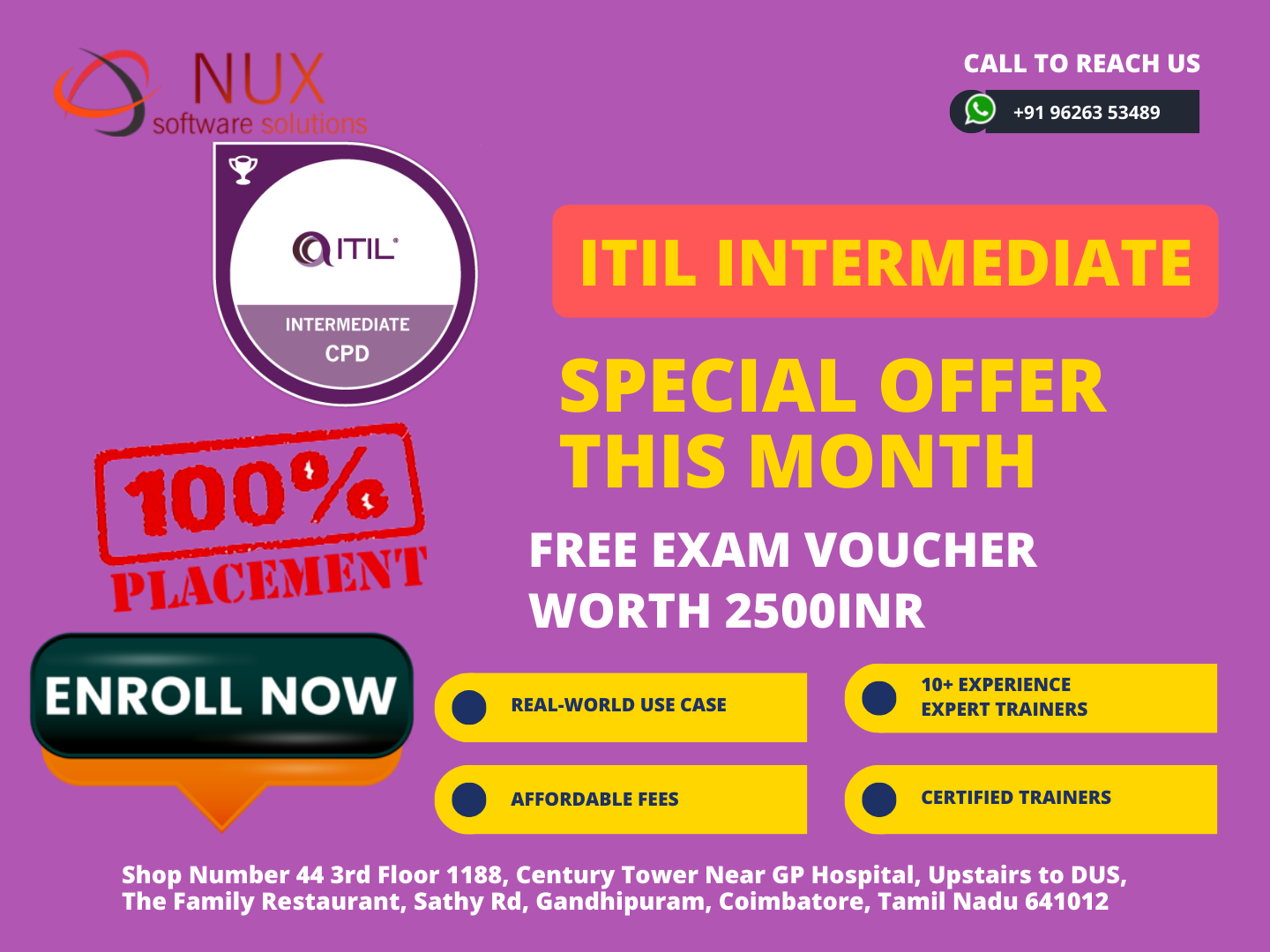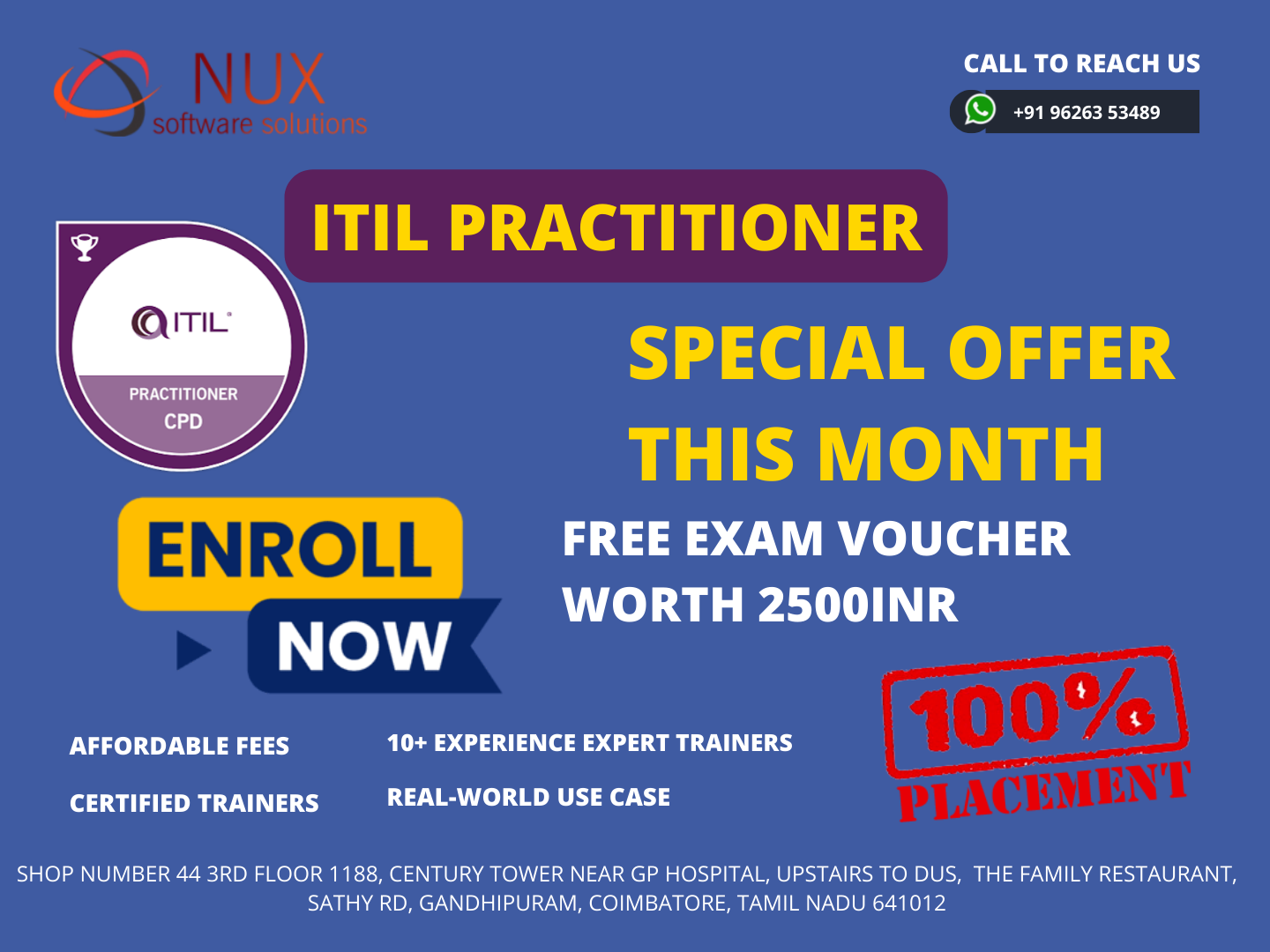ITIL Foundation


Best ITIL training courses classes deliver by Nux software solutions in coimbatore. Nux software solutions in coimbatore has excellent and advanced training programs that will give you better performance & hands on experience. Our industry’s expert trainers offer a wide range of skills and experience in their graded areas.
The Training center environment is too good for professional, individual, corporate, live project training and industrial training. Labs infrastructure is advanced, well managed and you can access LAB 24X7 from anywhere. Training center has international expert trainers and they have excellent knowledge, real time industry experience.
Our Training programs combine with several innovative learning methods and delivery models. We understand your requirement and it will give you 100 percent growth for your career and provide the cost effective training programs and also work with flexibility for the trainees.
ITIL Foundation certification is the most broadly accepted approach to IT service management in the world. ITIL can help organizations and individuals use IT to realize business change, growth and transformation.Nux software Solutions offers ITIL training courses to train the IT aspirants enhance the knowledge about the IT service management.
ITIL certification trainings can be chosen from an array of IT courses offered by Nux software solutions such as ITIL 2011 Foundation, capability stream, strategy lifecycle, design lifecycle, Six Sigma Yellow Belt combo, capability stream and many more. These courses are mapped to the ITIL certification exams.
With Nux software solutions you can study from the comfort of your home at times that suit you. you can Start Training from Any Date for training.All courses are Guaranteed to Run and come with an Exam Pass Guarantee.


